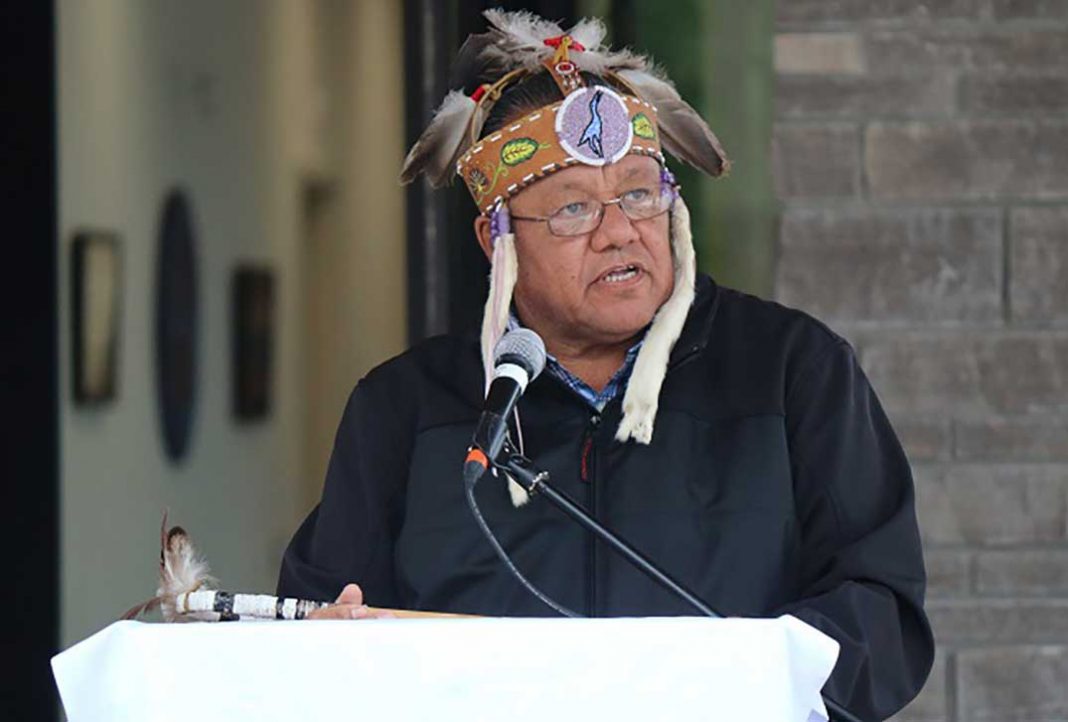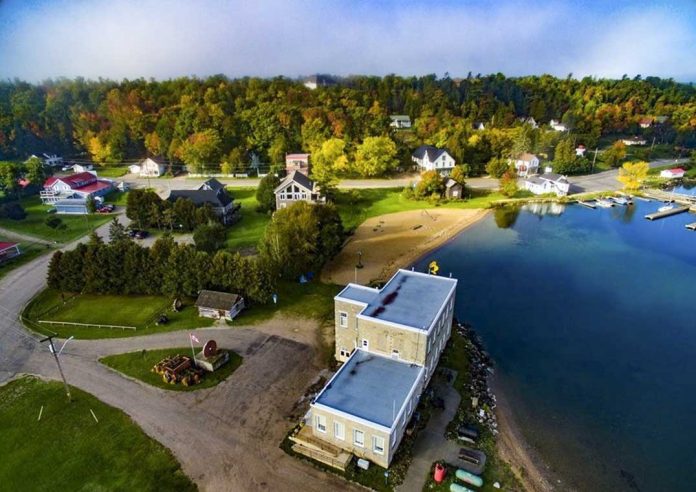FREDERICTON – Glen Hare, Grand Council Chief of the Anishinabek Nation expressed his and his fellow chiefs’ disappointment that only one federal party leader, Green Party Leader Elizabeth May, attended last week’s Assembly of First Nations (AFN) annual general conference.
“Prime Minister (Justin) Trudeau and the rest of the government and political parties were invited to our general assembly. Unfortunately, Elizabeth May, leader of the Green Party, was the only party leader who attended. All other parties sent representatives, which was very disappointing, especially when they are all trying to drum up support with this being an election year.”
Grand Council Chief Hare noted, “Seamus O’Regan, Minister of Indigenous Affairs provided a statement at the conference, and I tend to agree with him that the Liberal government has done a lot for the Anishinabek Nation. I think the Liberals have tried their best. Progressive Conservative Liz McLeod has not been there for First Nations, and Premier Doug Ford, since he was elected Premier of Ontario, has not yet met First Nations. “
In relation to this fall’s federal election, “the first thing I would like to personally do is encourage our citizens to get out and vote,” said Grand Council Chief Hare. “We have been NDP in our area for a long time, but it was disappointing their party leader didn’t show up for our assembly.”
“I give Ms. (Elizabeth) May credit for attending our conference,” continued Grand Council Chief Hare. “She emphasized the importance of issues like climate change, which is something we all need to work on together. But we can only do so much, we need government help as well.”
“You know there are so many things going on in Canada; we have floods, fires and states of emergency for water supplies in some communities,” continued Grand Council Chief Hare. “But there are also a lot of things we need to prioritize and things we can do in our own communities and homes to help the environment. We all need to work together; even the provinces have to work together to make positive changes.”
Green Party Leader Elizabeth May indicated at the conference she was grateful the AFN passed a resolution declaring a climate emergency.
She said Canada needs to take the climate emergency seriously, including support from Indigenous leadership, traditional knowledge and a knowledge of ecosystems.
“The people least to blame for this climate emergency are the ones living closest to the front lines of extreme weather,” Ms. May said. She applauded the leadership of Indigenous people across Canada, and encouraged them to keep fighting against greenhouse gas emissions and fossil fuels.
AFN National Chief Perry Bellegarde made it clear at the AFN assembly that he plans to influence party platforms and advocate on issues such as restorative justice, life beyond the Indian Act and fiscal Crown-indigenous relations. But he said the number one issue is climate change, a sentiment that was shared by the chiefs who declared a“global climate emergency” in a resolution passed on Tuesday of last week.
The resolution calls for “urgent and transformative” action from federal and provincial governments to keep global warming below 1.5° Celsius and to reach net-zero emissions by 2050.
“These issues are not just First Nations issues, these are Canada’s issues,” Mr. Bellegarde said.
At the AFN conference, National Chief Bellegarde called on members to lobby all parties in an effort to influence political platforms ahead of the federal election in October. He said the national group was able to influence parties’ policy in 2015 with its Closing the Gap document spelling out priorities. “We set up meetings with the people designing the party platforms. That’s the same process we’re going to do again for October,” Chief Bellegarde said.
The National Chief said 61.5 percent of eligible First Nations voters cast their ballots in 2015, and he wants that number to increase during the upcoming election. And he said the group’s top priority is climate change.
The second priority is restorative justice. He said that involves recognizing policing as an essential service but also adopting a broader view of the law. He questioned why there are so many First Nations people in jail and that common law and civil law is not currently recognized in Canada and said that there has to be room for First Nation’s law and natural law—Creator’s law. National Chief Bellegarde also wants to see which parties commit to acting on all the recommendations in the report of the inquiry into missing and murdered Indigenous women and girls.
At the general assembly, Minister of Indigenous Services Seamus O’Regan said the AFN and the Government of Canada have made remarkable progress together in recent years in improving health and well-being outcomes, working to keep children and family together, and spurring economic prosperity for First Nations.
“Since 2015, we have worked together with First Nations across the country to co-develop legislation, policies and programs that move us forward on the journey of reconciliation, as well as advance First Nations vision of self determination,” said the National Chief. “For instance, the recently passed Act Respecting First Nations, Inuit and Metis Children, Youth and Families, is a landmark piece of legislation because it begins a new era where Indigenous peoples will be able to choose their own solutions for their children and families and create a better future for the generations to come.”
“We are also working co-operatively to address the education gap between First Nations and non-First Nations by investing close to $1.5 billion for school infrastructure and $2.6 billion in Kindergarten to Grade 12 education. I have also announced a new co-developed framework aimed at strengthening First Nation control of education, respecting the regional diversity of First Nations education and better supporting students’ needs.”
“Canada is also committed to supporting First Nations children in other key areas,” said Chief Bellegarde. “Budget 2019 is investing $1.2 billion in Jordan’s Principle over three years to continue to help First Nations children obtain important services to address unmet needs. These include things such as speech therapy, educational supports, medical equipment, mental health services and more.”
He said the government is moving towards implementing a new fiscal relationship with First Nations, including the creation of a 10-year grant, which includes predictable, sustainable funding.





